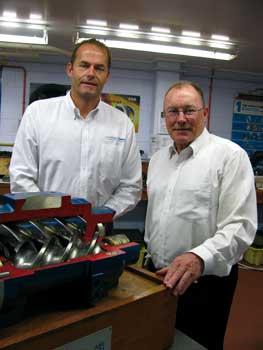| IN TOWN recently to speak at a one-day Vibration Analysis Seminar held at the Manukau Institute of Technology Maintenance & Reliability Centre, Jason Tranter, founder and MD of the Mobius Institute had a timely message for New Zealand’s engineers and plant operators. “It’s all about the need to have a reliability focus rather than a maintenance or failure focus,” begins Tranter. He goes on to explain that for many companies, maintenance planning can be just about dealing with the next emergency – or work you have to do because the schedule says you have to do it. Unfortunately it’s about fixing any problem and getting the plant up and running again – rather than basing decisions on condition, says Tranter. “If maintenance work was performed just based on condition and if the emphasis was on improving reliability so machinery condition was so much better – in the long run there would be a lot of money saved. “But often it’s the opposite approach – get the machine running as quickly as possible, but give little thought to whether things are balanced, aligned, properly lubricated, and so on. It’s a case of ‘get it started and minimise costs’ – but with this approach, would the person in charge of lubrication know if the grease is really getting to the bearings?” Tranter understands that maintenance plans quite often result in perfectly good bearings, seals or other parts being replaced for no real reason. “It’s a fact that the probability of a machine failing after rushing the replacement of parts like this is much higher than before the work was carried out. All you’re doing is potentially introducing problems.” Tranter likens it to medical surgery. “An eight hour operation could be done in five hours if the surgeon cuts corners. You may survive the initial operation, but your life will probably be shortened because of a problem introduced by the short cuts. The long-term prognosis will not be good.” Tranter says most seasoned maintenance engineers know that they’ll deal with all sorts of issues and failures during a maintenance cycle. “They slowly get ironed out as the year progresses, and it may be only towards the end of the cycle that things get to a satisfactory stage. Then the shut-down takes place and it starts all over again.” Tranter, whose company operates training centres in 30 countries, offers the following three recommendations: Monitor the condition of your machinery more closely. Trust what your testing equipment is telling you. Practice predictive maintenance, and ‘if it ain’t broke, don’t try and fix it’. When there is a failure – practice root cause failure analysis. Find out why there was a failure and fix the cause. Before you re-start your machines think, is everything balanced? Aligned? Lubricated? Are there any resonances (a silent killer in plants)? Tranter says securing the best training in condition monitoring and vibration analysis is vital if companies want their staff to be educated on best practice and certified. He employs specially developed software in his seminars that feature simulations and 3D animations and make vibration analysis interesting, entertaining, and most importantly, understandable. |
Jason Tranter with senior lecturer Larry Wiechern (right) at the MIT’s Maintenance & Reliability Centre.
|






